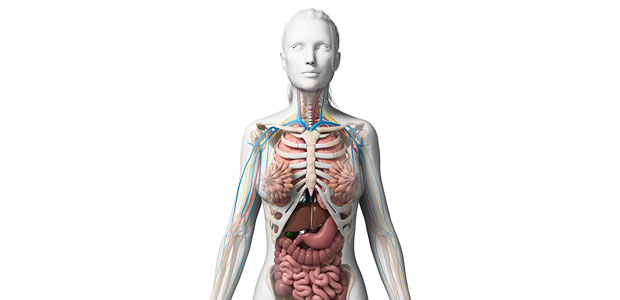Advertisement
Women’s Bodies
The female human body is truly a wonder. Like its male counterpart, the female body carries on all the normal, complex functions of living. Beyond that, it is capable of bringing new life into the world and nurturing that life during its critical early months. But this amazing capacity comes at a price. The hormonal … Continued

The female human body is truly a wonder. Like its male counterpart, the female body carries on all the normal, complex functions of living. Beyond that, it is capable of bringing new life into the world and nurturing that life during its critical early months. But this amazing capacity comes at a price. The hormonal tides that govern sexuality and reproduction can cause real problems including mood swings, weight fluctuation and potentially dangerous cancer.
For the body to run properly, it is essential that all of its nutritional needs are met. Even a mild deficiency of any single nutrient can greatly disrupt important functions. At the very least, I believe that virtually every woman needs to take a high quality multiple vitamin and mineral supplement. By this I mean one that provides high levels of all vitamins and minerals, not bare minimum amounts. Read labels carefully. Be aware that you will not be able to find a formula that can provide all of these nutrients at these levels in one single pill; it would simply be too large. It can require three to six tablets to meet optimum levels. While many “one-a-day” supplements provide decent levels of vitamins, they tend to be insufficient in terms of mineral content. Four key nutrients in a good multiple deserve special mention: calcium, iron, folic acid and vitamin E.
Calcium
The importance of calcium supplementation to bone health is well known. In the battle against osteoporosis, an effective dosage of calcium is based on several dietary and lifestyle factors. That being said, an effective dosage for supplemental calcium is 800 to 1,200 milligrams per day for most women. If there is significant bone loss, the dosage may need to be in the 1,000 to 1,500 mg range.
I do not recommend several “natural forms” of calcium such as oyster shell, dolomite or bone meal, as several studies have indicated that these calcium supplements may contain substantial amounts of lead. Calcium bound to citrate or fumarate, malate or succinate are probably the best forms.
Iron
Iron deficiency is the most common nutrient deficiency in menstruating women, with studies demonstrating an occurrence of 35 to 58 per cent in young, healthy women. During pregnancy, the number is even higher. A good dosage for iron in menstruating women is 18 mg daily. Iron bound to fumarate is usually better absorbed and better tolerated than other forms such as ferrous sulphate. Women who are not menstruating rarely require iron supplementation. In fact, I recommend that unless a post-menopausal woman has documented iron deficiency that she avoid supplemental iron.
Folic Acid
The discovery on the protective effect of folic acid supplementation against a birth defect known as spina bifida has been hailed as the most important medical discovery in the second half of the 20th century. Folic acid supplementation also appears to be helpful in protecting against colon cancer, heart disease, osteoporosis and Alzheimer’s disease. A dosage of 400 to 800 micrograms per day is recommended.
Vitamins C and E
The two primary antioxidants in the human body are vitamin C and vitamin E. Vitamin C is an “aqueous phase” antioxidant. This means that it is found in body compartments composed of water. In contrast, vitamin E is a “lipid phase” antioxidant because it is found in lipid (fat) soluble body compartments such as cell membranes and fatty molecules. Both these nutrients show promise as immune system boosters and important protectors against conditions linked to oxidative damage such as heart disease, cancer, strokes, arthritis, cataracts and Alzheimer’s disease. I recommend a daily intake of vitamin E (be sure to use the natural d-alpha form) of 200 to 800 IU, as well as a daily intake of 500 to 1,500 mg of vitamin C.
Final Recommendation
I also recommend that women consume green tea on a regular basis or use a multiple vitamin and mineral formula that also includes green tea extract. Population studies have demonstrated that green tea consumption may actually be one of the major reasons why the breast cancer rate is lower in Japan. In addition to breast cancer, green tea has also been shown to prevent lung cancer as well as cancers of the gastrointestinal tract, including pancreatic and colon cancer.




